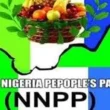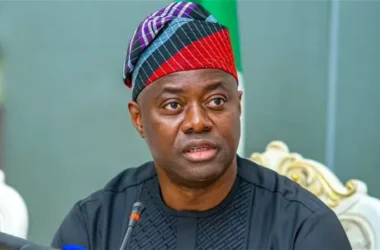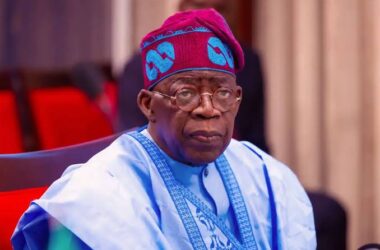As Nigeria approaches its 64th Independence Day on October 1, 2024, the Federal Government has announced plans for a subdued celebration, citing the country’s current economic challenges. Meanwhile, Nigerian youths, led by activists demanding an end to poor governance, are gearing up for nationwide protests against the rising cost of living.
The Secretary to the Government of the Federation, Senator George Akume, explained during a press briefing on September 26 that President Bola Tinubu’s administration has decided on a low-key celebration due to the harsh economic realities facing the country. He acknowledged the widespread suffering caused by the difficult economic conditions, expressing the government’s sympathy for citizens struggling to cope.
Since taking office in May 2023, President Tinubu’s policies, particularly the removal of the fuel subsidy, have led to a significant increase in fuel prices, further aggravating the cost of living. According to the National Bureau of Statistics (NBS), the prices of essential goods such as rice, beans, bread, and eggs have surged dramatically over the past year.
For instance, the price of beans rose by 271.55% year-on-year, from N692.95 per kilogram in August 2023 to N2,574.63 in August 2024. Similarly, the price of a 50kg bag of rice has now reached approximately N100,000, far beyond the reach of many Nigerian households.
These harsh economic conditions have triggered a wave of protests organized under the banner “FearlessInOctober,” following a similar protest in August 2024. The August demonstrations, originally focused on hunger and economic hardship, turned violent, with 30 reported deaths across seven states, according to a report from Beacon Security Intelligence. Most of the casualties were attributed to gunfire from law enforcement and unidentified armed groups, though the Nigerian police claim only seven fatalities.
Despite these setbacks, protest organizers argue that their demands remain unaddressed. In a statement co-signed by several activist groups, including the Education Rights Campaign (ERC), the Movement for Fundamental Change (MFC), and the Pan-African Consciousness Renaissance (PACOR-Nigeria), they vowed to continue their protests against what they term “anti-poor policies.” These groups highlight the removal of the fuel subsidy as one of the key drivers of the economic difficulties facing Nigerians today.
“As we speak, the price of fuel hovers between N900 per litre to N1,900 per litre depending on which parts of the country you are,” a protest leader noted. This dramatic increase in fuel prices has had a knock-on effect on food prices, making life increasingly unbearable for many.
In response to the planned protests, the Lagos State Police Command and the Department of State Services (DSS) have issued warnings, urging demonstrators to avoid violence. While the security agencies acknowledge the right to peaceful protest, they have promised to maintain order and prevent the demonstrations from being hijacked by miscreants. Lagos State Commissioner of Police Olarenwaju Ishola assured residents of the state that security forces would protect both protesters and non-protesters during the Independence Day activities.
However, protest leaders, including human rights activist Omoyele Sowore, insist that security agencies must safeguard protesters’ rights, emphasizing that Nigerians are within their rights to demonstrate peacefully. He said, “The security agencies are aware that there will be a nationwide action and they have a duty to protect protesters and non-protesters.”










